British Prime Minister Theresa May called for an “even more internationalist role” for her country and for the special relationship in an address to Republican lawmakers at their congressional retreat in Philadelphia today.
The conservative UK leader meets President Trump on Friday for talks at the White House, his first visit from a foreign leader since inauguration.
May told GOPs that since the day of the Founding Fathers, “it has been America’s destiny to bear the leadership of the free world and to carry that heavy responsibility on its shoulders.” She reflected on the defeat of communism with President Reagan and Margaret Thatcher, “proving that open, liberal, democratic societies will always defeat those that are closed, coercive, and cruel.”
“But the leadership provided by our countries through the special relationship has done more than win wars and to overcome adversity. It made the modern world. The institutions, upon which that world relies, were so often conceived by our two nations working together. The United Nations, in need of reform, but vital still, has its foundations in the special relationship, from the original declaration of St. James’ palace to the declaration by United Nations signed in Washington and drafted themselves by Winston Churchill and President Franklin D. Roosevelt,” May said.
“The World Bank and international monetary fund, born in the post World War at Bretton Woods, conceived by our nations working together. And NATO, the cornerstone of the west defense, was establishing on the bonds of trust and mutual interest that exist between us. Some of these organizations are in need of reform and renewal to make them relevant to our needs today. But we should be proud of the role our nations, working in partnership, played in bringing them into being and in bringing peace and prosperity to billions of people as a result,” she added, drawing applause from GOP lawmakers.
The prime minister told the Republicans that their electoral victories give them the opportunity to put conservative principles “at the heart of this new era of American renewal.”
“As Americans know, the United Kingdom is by instinct and history a great global nation that recognizes its responsibilities to the world,” she said, adding that after the Brexit vote “we will build a new partnership with our friends in Europe; we’re not turning our back on them or on the interests and the values that we share.”
The future, she added, will see Britain “become even more global and internationalist in action and in spirit.”
“A future that sees us step up with confidence to a new, even more internationalist role, where we meet our responsibilities to our friends and allies, champion the international cooperation and partnerships that project our values around the world, and continue to act as one of the strongest and most forceful advocates for business, free markets and free trade anywhere around the globe,” May said. “This is a vision of a future that my country can unite around, and that I hope your country, as our closest friend and ally, can welcome and support.”
May called for renewing the U.S.-UK special relationship tailored to “this new age.”
“We have the opportunity to lead together again because the world is passing through a period of change. And in response to that change, we can either be passive bystanders or we can take the opportunity once more to lead and to lead together,” she said. “I believe it is in our national interest to do so. Because the world is increasingly marked by instability and threats that risk undermining our way of life and the very things that we hold dear. The end of the cold war did not give rise to a new world order. It did not herald the end of history. It did not lead to a new age of peace, prosperity and predictability in world affairs.”
Lawmakers interrupted May with applause when she named “radical Islamists” as one of those global challenges. She later added that “of course we should always be careful to distinguish between this extreme and hateful ideology and the peaceful religion of Islam and the hundreds of millions of adherents, including millions of our own citizens, and those further afield who are so often the first victims of this ideology’s terror.” She also emphasized focusing on the “whole spectrum of extremism, starting with the bigotry and hatred” that can lead to violence.
“So we, our two countries together, have a responsibility to lead. Because when others step up as we step back, it is bad for America, for Britain, and the world,” she said. “The days of Britain and America intervening in sovereign countries in an attempt to remake the world in our own image are over. But nor can we afford to stand idly by when the threat is real and when it is in our own interests to intervene.”
“We must be strong, smart, and hardheaded. And we must demonstrate the resolve necessary to stand up for our interests. And whether it is the security of Israel in the Middle East, or the Baltic States in Eastern Europe, we must always stand up for our friends and allies in democratic countries that find themselves in tough neighborhoods too.”
May also got applause from the congressional Republican when she offered a tip on dealing with Russian President Vladimir Putin: “My advice is to engage, but beware.”
“We should not jeopardize the freedoms that President Reagan and Mrs. Thatcher brought to Eastern Europe, by accepting President Putin’s claim that is not in his sphere of influence,” she added.
May frequently invoked the work of Reagan and Thatcher on the world stage, “because when the world demands leadership, it is this alliance of values and interests, this special relationship between two countries that is, to borrow the words of another great American statesman, enters the arena with our faces marred by dust and sweat and blood, to strive valiantly and know the triumph of high achievement.”


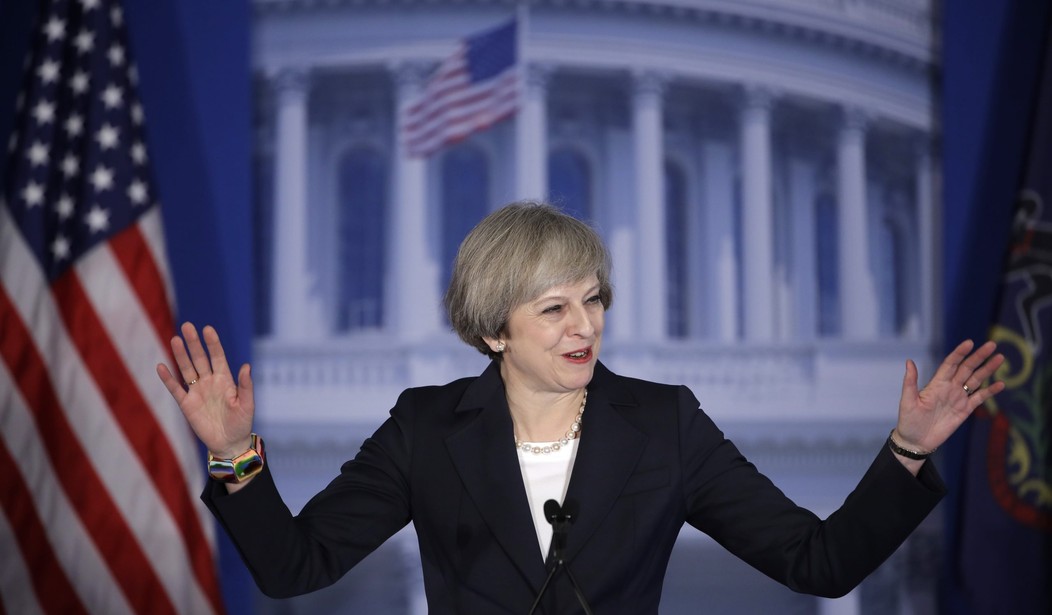
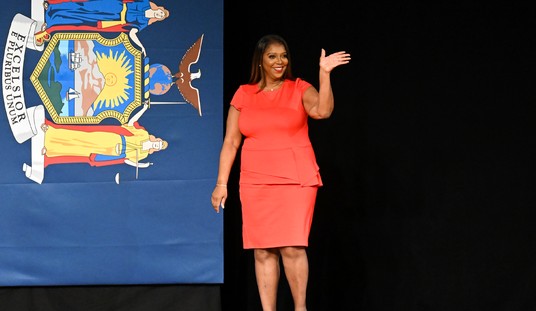

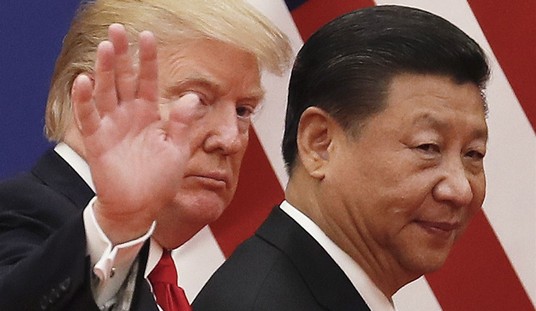
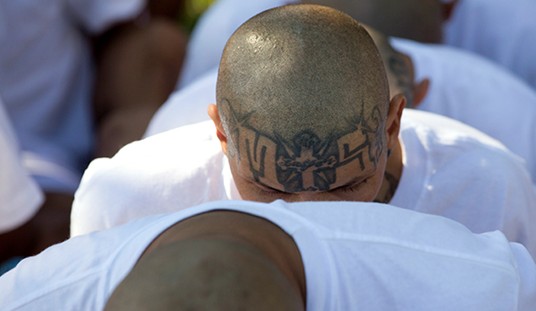
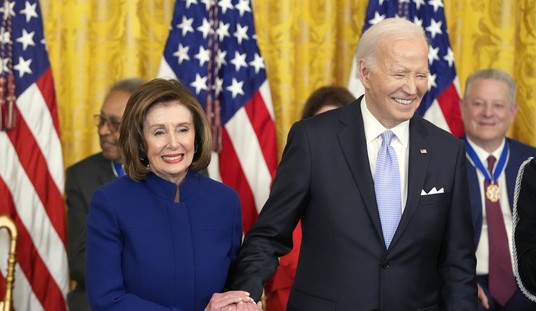

Join the conversation as a VIP Member